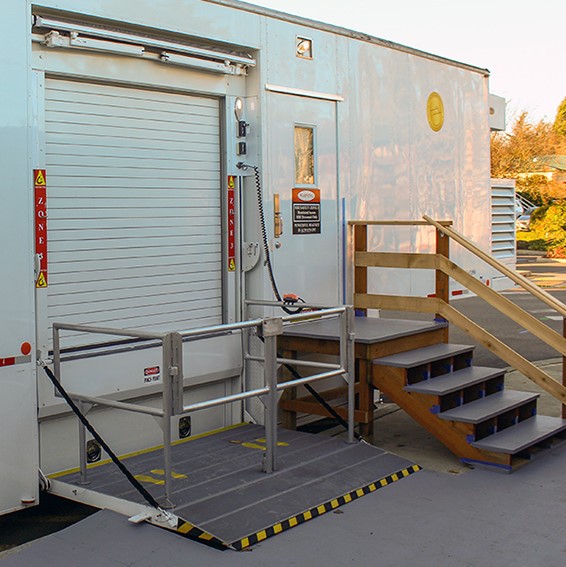What to do when you suspect your child needs help
COVID-19 has affected people of all ages. As a result of the changes we must take to reduce this virus’s spread, our community has had to make many adjustments. We have successfully kept the numbers of new infections down; however, we have made sacrifices to do this. Members of our community have seen changes in our social routines, access to education, access to healthcare services, and the ability to participate in special life events. We have also seen changes to our sense of security and safety. These challenges can seem incredibly overwhelming, especially to children and adolescents confused about changes to routines, or who may have very little sense of control over the changes.
Additionally, the return to school may have brought up additional stresses for children. For some who felt anxiety at school feel calmer at home. For others, school was the refuge, and restrictions on the amount of time they can spend there may continue to cause them stress. Bullying may continue to play a role for children, especially through their online interactions. Parents may feel that they have little knowledge or access to what their children are experiencing on the web. In the face of significant stress like this, children and adolescents can experience heightened feelings of anxiety, depression, or even thoughts of suicide.
In raising children, most parents have asked themselves, “Is this normal behavior?” In pre-COVID times, it was usually easy to use friends, family, and teachers as resources to answer this question. However, it might not be as easy to access those we once relied upon for support in current times. It may seem more daunting to tell whether our children need additional help. In general, the range of expected behavior in children and adolescents is quite broad, making room for the qualities that make all children both unique and still quite “normal.” Still, there are other times when it is less clear whether what is happening for a child requires further assessment or support.
Above all, it is important to remember that our community is in this together. Parenting is difficult even in the best of times. There are resources available to support you on this journey.
All children need help learning new skills, navigating unfamiliar social situations, managing academic expectations, and practicing healthy decision-making. These are particularly important when stress is high, and solutions are not always readily available.
Parents are even more on the front lines for meeting these needs than they typically are. Sometimes it can be daunting to figure out where to turn. Parents can also feel guilty that they may have done something wrong or fear that their child may develop a chronic or debilitating mental illness. Additionally, they may have concerns about available treatment options and if these might place additional strain on their already limited time and financial resources. These fears and feelings of guilt are quite normal.
To guide you along in your process, here are some factors to consider when caring for your children’s mental health.
- Do I have a clear idea of my child’s thoughts and feelings during this time? Sometimes it can be challenging to understand how a child is coping with stress. Talking to your child about their experiences is the first step in understanding how they are doing. Some parents struggle with how to do this effectively. Let me assure you that talking to your child will help you identify the problems at hand and get started on finding a solution. I often recommend the book How to Talk So Kids Will Listen and Listen So Kids Will Talk by Adele Faber and Elaine Mazlish.
Additionally, the CDC has put together a resource kit for supporting children and adolescents during this time: https://www.cdc.gov/coronavirus/2019-ncov/daily-life-coping/parental-resource-kit/index.html. They have suggested conversation starters to use with your child to better understand what they may be going through.
- Are my child’s thoughts, feelings, and behaviors within the range of normal for her age? Your child’s primary care provider (PCP) and teachers are available for feedback about your child’s health and mental development. Contact with them should be your first stop on the road to support. Even though contact has moved on-line for many supports they can still help you determine if what your child is going through is “developmentally appropriate.” If help is needed, the PCP or teacher can help direct you to mental health services through the school, the Jefferson Healthcare Integrated Behavioral Health Program, or other community resources.
- How long has this been going on? Children are strongly affected by the same stresses as adults (sometimes even more!). The changes brought about by COVID-19 are considered stressors, and sometimes there are additional stresses for a family. With a recent divorce, financial strain, loss of a loved one, the addition of another child, or any other major change, it can be quite normal to see a child become more emotional, act younger than their age, lose skills that they previously had, or even become angry. Talk to your child about how they are doing and track their behavior. If they don’t return to their previous level of functioning after 3-4 weeks, or if their behavior leads to further disruptions in their social or emotional health, seek additional support from your child’s PCP or teacher.
- What should I do if things seem very serious for my child? Any sudden or drastic change, such as total social withdrawal, refusal to go to school for a prolonged period, substance use, or risky sexual behaviors, should be addressed quickly. Again, your child’s PCP and teacher can serve as excellent resources for support.
- What can I do to decrease the risk of suicide? Parents can bring up the subject of suicide regardless of whether they think a child seems depressed. In fact, teens can have suicidal thoughts and behaviors and can die by suicide, even if they aren’t depressed.
There is a common myth that is talking about suicide can lead to suicide. This is a myth and is not true. Conversations about suicide more often help young people to feel relieved that they are no longer alone. These moments of connection also enable them to identify their problems and access the support they need to get better.
This can be done in a general and age-appropriate way by asking “What do you know about suicide?” or “I heard that more young people are feeling sad these days and some people are so sad that they don’t want to live anymore. Have you heard of anyone feeling this way? Do you have any questions about suicide?”
It is also ok to be direct. For example, it is ok to ask a child if they have ever been so sad that they didn’t want to be a part of the world anymore or if they have ever tried to hurt themselves. In fact, we often find that the direct way of asking usually gets a better response. If the child identifies thoughts or behaviors like this, parents should respond calmly and nonjudgmentally. Ask the child to share more about their thoughts and thank them for sharing that difficult information.
It is best to try not to respond with immediate advice or warnings about the pain that suicide would cause the child’s family or friends. Instead, respond with supportive and validating statements like, “It’s hard for me to hear that you have been this sad, and it seems like things have been tough for you. I want you to know that I am here for you and we will get through this together. I would like to know more about what you’ve been thinking and feeling.” Pause and allow the child to talk freely. Once the child has shared their thoughts, the parent can say, “We may need some additional support to teach us both about how to help you feel better, so I am going to make some calls for more information.”
One of the most important things a parent can do is respond by helping their child to make a plan to keep themselves safe. Information on how to do this can be found at www.lock2live.com
Parents can also use the following crisis resources for support:
-
- Dial 911 if your child is at immediate risk of harming themselves or someone else
- Discovery Behavior Health (DBH) provides FREE crisis services to all residents of East Jefferson County. Crisis services are available through DBH on a walk-in basis at their office at 884 W. Park Avenue, Port Townsend, WA 98368. Their hours are 8:00 a.m. – 5:00 p.m., Monday – Friday.
- Regional Volunteers of America (VOA) crisis line is available, by telephone, 24/7 for those individuals requiring assistance: 888-910-0416
- Volunteers of America (VOA) 24-hour online crisis chat: www.imhurting.org
- National Suicide Hotline: (800)784-2433 (800-SUICIDE)
- Crisis Text Line: Text 741741
- National Suicide Prevention Lifeline: (800)273-8255 (800-273-TALK) www.suicidepreventionlifeline.org
- What will happen next? If a mental health concern is identified, the first-line treatment is usually a combination of therapy, parenting training, and coordination with the child’s medical provider and school. This does not imply that you, your child’s PCP, or your child’s school has “failed” in caring for your child. Instead, these services are meant to enhance and build upon the critical work you are already doing. In many cases, children find relief with these interventions alone. However, if treatments are not effective after a period of regular attendance, a child may be referred for an assessment with a psychiatric medication specialist. This specialist can make a recommendation on whether medication could be helpful in addition to ongoing therapy.
Above all, it is important to remember that our community is in this together. Parenting is difficult even in the best of times. There are resources available to support you on this journey.





